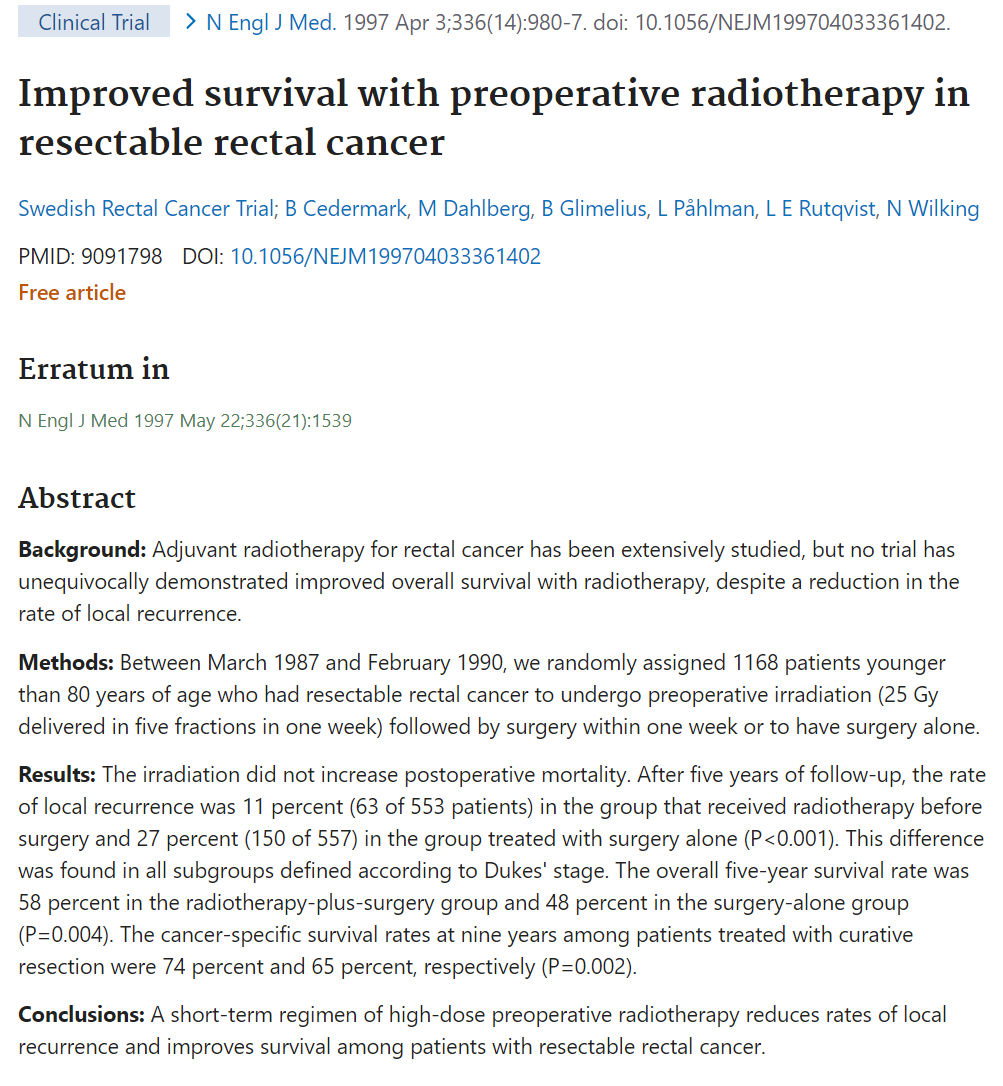I'm a huge fan of 25 / 5; and participated in the RAPIDO trial. Easier on the patient, good results; easier for the patient and the oncologists, and has level 1 evidence from at least TWO prospective, randomized studies that it's either better or not worse (RAPIDO, Polish-2). It does take different communication with the patient due to the proctitis happening after the radiation is complete...
This latest WashU report builds on a long WashU legacy to let people know that there isn't something magical about US rectal cancer patients as opposed to European ones! After doing SCRT -> immediate surgery for several years there, a nice prospective, phase II study with SC-TNT came out (
Five fractions of radiation therapy followed by 4 cycles of FOLFOX chemotherapy as preoperative treatment for rectal cancer - PubMed)
I don't think the WashU report on it's own moves the needle; but it continues to investigate the regimen for organ preservation, and has patients with less advanced disease than RAPIDO. It includes the population that may be recommended for NO RADIATION after PROSPECT reports out. And it shows that this population may have good organ preservation with SC-TNT. That's going to keep radiation therapy involved in these 'bi-modality' patients; who may do equally well with RT+chemo; chemo+surgery; or maybe even RT+surgery.
The key trial for the organ preservation, of course, is going on in Europe in Germany. They are randomizing patients between long course chemoradiation + chemo VERSUS short course radiation + chemo; essentially OPRA vs RAPIDO with the endpoint of cCR.
Short-course Radiotherapy Versus Chemoradiotherapy, Followed by Consolidation Chemotherapy, and Selective Organ Preservation for MRI-defined Intermediate and High-risk Rectal Cancer Patients - Full Text View - ClinicalTrials.gov.
With regards to changing practices... I brought short course radiation and TNT to our practice a few years ago; with many colleagues who had 20 years plus of experience. It took about 1 year to change the practice; and definitely to have some flexibility when starting out. I should collect our path outcomes both before and after the change; but anecdotally patients are doing quite similarly.
And, it's interesting that the two NCCN centers in our area do not use short course radiation routinely! But none have the temerity to point out that the radiation I delivered was 'inappropriate'! Cause, you know, data.



